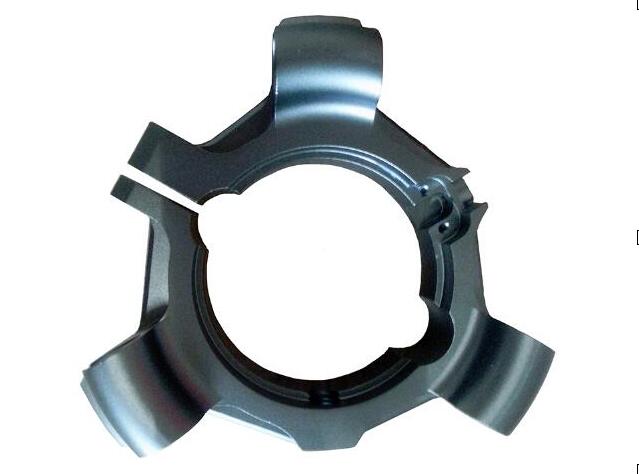The thermal conductivity of titanium alloy is small, about 1/3 of that of iron. The heat generated during machining is difficult to release through the workpiece; at the same time, because the specific heat of titanium alloy is small, the local temperature rises quickly during processing. It is easy to cause the tool temperature to be very high, sharply wear the tool tip, and reduce the service life. Experiments show that the temperature of the tip of the tool for cutting titanium alloy is 2-3 times higher than that of cutting steel. The low modulus of elasticity of titanium alloy makes the machined surface easy to spring back, especially the processing spring back of thin-walled parts is more serious, which is easy to cause strong friction between the flank face and the machined surface, thereby wearing the tool and chipping. Titanium alloys have strong chemical activity, and can easily interact with oxygen, hydrogen, and nitrogen at high temperatures, increasing their hardness and decreasing plasticity. It is difficult to mechanically process the oxygen-rich layer formed during heating and forging.
Why choose titanium?
The strength of titanium is comparable to steel, but the density is much lower. This makes it an ideal material for tasks that require high strength but are limited by the weight of the parts. The corrosion resistance of titanium is also different from that of steel, which is why it has many applications on ships and submarines. Titanium also has high resistance to high and low temperatures. This material and its lightweight properties make it an ideal metal for the aerospace industry and various materials from recreational aircraft to ballistic missiles.

CNC machining titanium requires experience:
The use of titanium and its alloys is increasing, especially in aerospace and biomedical applications. Custom machined parts made of titanium face unique challenges and require experienced machinists to ensure the best results when machining titanium. Anyone who has been standing in front of a lathe or machining center for a long time knows that titanium is really difficult to cut. It has multiple characteristics that make it ideal for many applications, but can cause rapid tool wear and confusion for many machine tool operators. Fortunately, the right combination of knowledge and tools can solve the most difficult titanium machining. Success largely depends on choosing the right tool, using the appropriate feed and speed, and generating tool paths to protect the cutting edge of the tool and prevent damage to the workpiece,
Why is titanium so popular
Although aluminum and aluminum alloys were previously the materials of choice for the aerospace industry, new aircraft designs increasingly use titanium and titanium alloys. These materials are also used in the biomedical industry. The reasons for their popularity include light weight, high strength, excellent fatigue performance and high resistance to aggressive environments, and they do not rust and do not deteriorate. Titanium parts last longer than other metals and materials, and provide better performance and results.
If you'd like to speak to a member of the Anebon team, please get in touch at info@anebon.com.
Post time: Jan-08-2021

